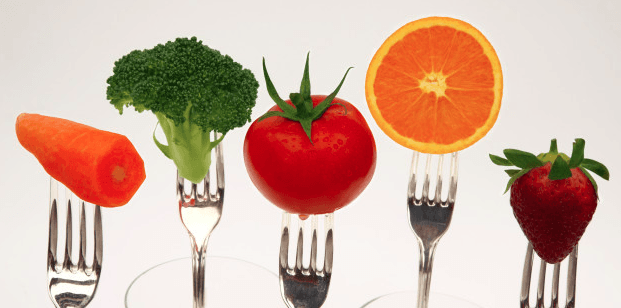
Your thyroid is a gland in your neck that sits in front of the trachea and below the larynx. It is responsible for controlling metabolism by producing thyroid hormone (TH) that controls your body’s energy production and consumption.
Genetics, stress, environmental toxins, an autoimmune condition and the food you eat all play a role in how well your thyroid functions. While most of these are outside of your control, you can do something about the food you choose to eat.
Recommended Vitamins and Minerals
Your Boone physician recommends making sure you have plenty of the following vitamins and minerals in your diet:
Iodine
Your thyroid uses iodine to produce TH for your body. Not enough of this and you are at risk of developing hypothyroidism or a goiter. For most Americans, getting enough iodine is not a problem; our table salt has been iodized since 1924. But there are many people in North Carolina and throughout the country that follow a low sodium diet.
If you are one of these people, your Boone physician recommends the introduction of seaweed into your diet. There is a wide variety of seaweed on the market, the amount of iodine in a gram can vary from 11 percent up to 1,989 percent of your percent daily value. So be careful; too much iodine can have just as much of a negative effect on your body as too little.
Dairy
Dairy products contain a more manageable amount of iodine, as well as plenty of other vitamins. Plain, low-fat and Greek yogurt all contain about 50 percent of your daily requirement of iodine.
Seafood
Fish, such as cod and canned tuna, and shell fish are also excellent sources of iodine.
Selenium
Found in nuts, specifically Brazil nuts, this mineral has been shown to reduce your likelihood of developing goiters and thyroid tissue damage. It may also help prevent long-term thyroid damage in people with Hashimoto’s and Graves’ disease. As with iodine, too much of a good thing can have negative consequences. Too much selenium can cause hair loss, discolored nails and heart failure.
Eggs
Eggs are seen as a thyroid super food. Just one contains 16 percent of your daily iodine and 20 percent of your needed selenium. Most of the nutrients are in the yolk.
Zinc
Your thyroid requires zinc to produce TH. Too little can lead to hypothyroidism. While most people get enough Zinc, chicken and beef are excellent sources if you have a poor diet or a GI condition that interferes with your ability to absorb zinc.
Vitamin D and Antioxidants
Vitamin D and antioxidants are also good for your thyroid. Berries, specifically strawberries, blackberries, goji berries and cranberries, contain a large amount of these.
As you can see, there are a wide variety of foods that are helpful for your thyroid. Most of these foods are standard in a healthy and balanced diet. For more information on how to live a healthier life, contact your Boone doctor today.
Next week, we will discuss the foods that are beneficial to your hearing health.